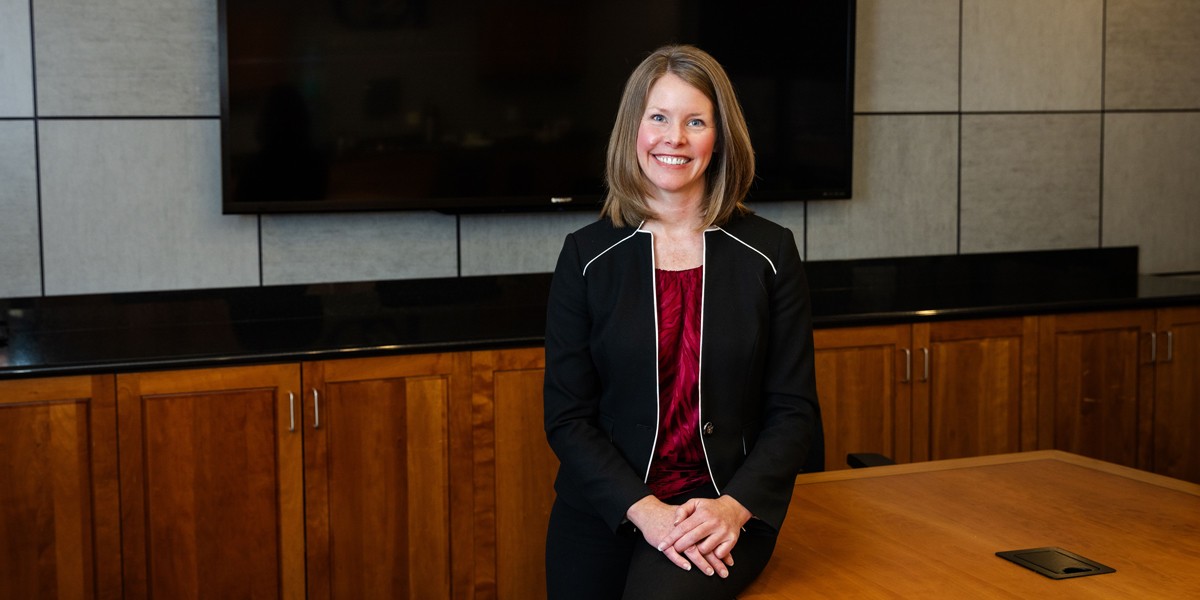
Julia Hatler (Ph.D. Molecular, Cellular, Developmental Biology and Genetics, ’09) was born with an inquisitive streak. She recalls asking her mother how many trees were on a particular mountainside on a trip to Glacier National Park at eight years old. “That curiosity about the natural world and wanting to understand and problem solve and figure things out has always been there,” she says.
Fast forward to the present and you’ll find Hatler still asking questions of a different sort in her leadership role at one of Minnesota’s top life sciences companies. As vice president of Bio-Techne’s Cell and Gene Therapy business, Hatler is still asking questions. She’s served in a variety of roles at Bio-Techne and R&D Systems for the past 12 years starting in the marketing department creating content about the company’s products and services. As the company grew and moved in new directions “I was a person who raised my hand whenever interesting opportunities came up,’ she says.
Hatler credits her graduate training for preparing her to make the most of the opportunities that came her way. Her advisor, retired College of Biological Sciences Professor Ross Johnson, encouraged her to explore her interests outside of the lab and emphasized teamwork. “He valued creative thinking, writing and communication,” she says. “He wanted his students to acquire the scientific skills and the ‘soft’ skills to succeed – to be equally adept at designing a good experiment and telling people about it in a really compelling way.”
Johnson retired in 2011 after more than four decades at the University. His own research focused on cell communication. He was a founding faculty member in the Department of Genetics, Cell Biology and Development. Hatler was his last graduate student.
That well-rounded education has come in handy once Hatler transitioned into roles on the business side of biotech. Her strong communication skills in particular proved an asset. She worked her way from marketing into a role developing an entirely new line of business focused on unique, custom-developed research reagents. Since then, she’s led the company’s antibody and immunoassay teams.
Training in Johnson’s lab prepared Hatler to work in a highly collaborative way. She works with teams made up of biologists, engineers, marketers and others to identify opportunities and develop new research products. That cross-pollination is one of the things she enjoys most about her work and a reason for her success as a graduate student.
“Research is a team activity and I felt that Julia was the kind of person that would thrive in that setting,” says Johnson. “It's stimulating to be with people thinking about the same problem from different perspectives.”
Even though her work is behind a desk rather than a lab bench, Hatler sees a through line from the curious kid she once was to the graduate student learning the language and mindset of science. Her scientific training comes in handy as she assesses opportunities, designs processes and outlines strategies. “It's still at times like applying scientific methodology to business,” says Hatler. “We ask questions like ‘What's my hypothesis?’ ‘What data do I have to support this strategic direction,’ and sharing those findings in a way that is convincing. I can’t turn my science brain off!”